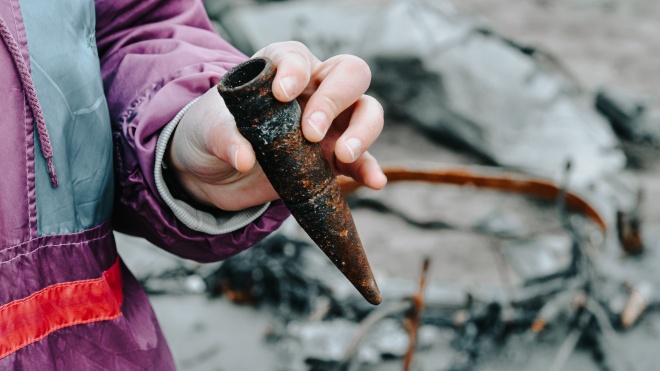Hundreds of public figures and politicians of the Baltic countries, in particular the ex-president of Estonia Toomas Hendrik Ilves, recently shared an article of the Estonian publication Eesti Ekspress. Its title is “Human Life Has No Value There”: Baltic Counterintelligence Officers Speak Candidly About Russian Cruelty, and we will devote the entire review today to this article.
The author of the text, Estonian playwright and journalist Eero Epner, worked on this article for several months ― in particular, discussing recent events in Ukraine with counter-intelligence agents. For years, his interlocutors exposed spies among the government officials of Estonia, Lithuania and Latvia ― and in most cases, these people spied in the interests of Russia. They have been studying the peculiarities of the behavior of Russians and the Russian government for decades ― and atrocities in Bucha didnʼt surprise them. According to the words of the Estonian special services officer Alexander Toots or his Latvian colleague Normunds Mežviets, the Russians did the same during the occupation of the Baltic states in the late 1930s ― early 1940s. There is less evidence of those times, but both the style and the priorities can be guessed without fail.
How did Toots expose the spies, even when they were colleagues of many years? Controlling oneʼs own behaviour and monitoring the emotions of the opponent was needed more often than reason. "When there is a real threat of exposure, they donʼt know how to behave. They just canʼt keep their cool. They become emotional, irritable, confused in words and decisions. At some stage, Russian agents simply lose control and cannot do anything about it," the author writes. And Toots adds: "Chaos is a feature of Russian culture. There must always be a leader, a shepherd ― otherwise everything turns into anarchy." When Russians are alone in the face of risk and have to make difficult decisions, they start to panic and betray themselves.
In the article, the Baltics assure that, thanks to the history and geographical location of their countries, they understand Russians best in the EU. And just like the Ukrainians, they are trying to convince the world that this war is not a one-man initiative of Putin, but an organic consequence of the reality in which Russian society lives. Where a "powerful", intimidating state is considered more valuable than personal well-being and development. Where only the right of force is recognized, and the very fact of participation in negotiations is perceived as weakness. Where there is no understanding that the situation can benefit both parties, someone must definitely lose, and it must not be Russia. "The West is lucky," says Toots. "We are a buffer between it and Russia. They have forgotten many things and believe that Russia is the same as them." But it isnʼt. Even if, by some miracle, the opposition politician Aleksey Navalny leaves prison and becomes the head of Russia, Russian society must also be seriously cleansed for a qualitative change in the state. But the Russians have not done quality work on mistakes for hundreds of years. Impunity led to a sense of superiority. The whole world is now experiencing the result.
Epnerʼs interlocutors consider Moscowʼs crushing defeat in the war with Ukraine to be the only chance that Russia and Russian society will cease to pose a threat to the civilized world. Only a comprehensive crisis can push Russians to seriously think about what is not working in their mindset ― and to make efforts for changes. Meanwhile, Epnerʼs great-aunt, who is still energetic and relatively healthy despite being a hundred years old, forgot about a good nightʼs sleep with the start of a full-scale war between Russia and Ukraine. She is afraid that the Russians will come to rape her again, as they did in the 1940s.
